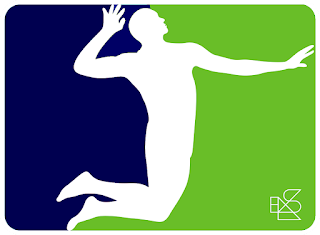Technology and/or Communication
As the variety of tools for communication develop we often make the assumption that this improves our ability to communicate. Mobile phones improve our ability, live video streaming improves our ability, even GPS tracking and accelerometers improve our ability to communicate. But are we confusing the increase in different modes and methods to transfer volumes of data with communication?
The variety of different tools available in a single sport like the NFL is amazing, particularly if you compare it to what was available just 10 or 20 years ago. A sport like volleyball, due to its small and discrete rallies, has always been very progressive with technological coaching tools. This article describing the tools being used at the London Olympics games is typical of many superficial media articles in that it boldly announce cutting edge tools that have in fact been used for more than a decade. Hugh McCutcheon himself used a small tablet PC on the bench in the Beijing Olympics 4 years earlier and all countries have been using audio communication for at least the last 15 years (the thing about elite sport is that when someone comes up with what they think is a good idea, they tend not to tell anyone else what they are doing!). In practical terms the most important idea from this article is where Hugh says: "We have to be careful with it," McCutcheon said. "The premier skill in this game is reading and reacting so we only want to give the best information at the right time."
This is where we, as technology enthusiasts, performance analysts, educational technologists, fail over and over again (but succeed at times also). Technology isn't creating an 'edge', communication is. Analysis doesn't achieve any specific objectives, communication does. Technology and Communication are simply tools which MAY improve communication within a sporting environment, and communication will always require an effective connection between the sender and the receiver. As Hugh says, the key is giving the 'best information at the right time', and doing this remains, to a large extent, a human skill which incorporates not just the information the sender understands, but their knowledge of the receiver and the judgement of the best way to share this information effectively and in a timely way.
So for all the articles on progressive technology there are also articles like this on the San Antonio Spurs. The Spurs use technology and analysis as much as any team of their stature, but it is not the emphasis of the program. The emphasis of the program is coaching the players, and anything else they do is a tool to support that.
The key to the use of technology in sport is not what is possible but what is possible to do effectively. It is a question of what WILL make an impact, not what could make an impact. Quite often it is a question of what NOT to do, rather than what can be done.
(Photo Credit)



I always had a sneaking suspicion that volleyball coaches were more advanced than coaches of other sports : )
ReplyDeleteI really liked the stuff that Hugh says. I've often thought the same things but never quite as succinctly.
Common sense often seems obvious when someone else says it succinctly!
Delete